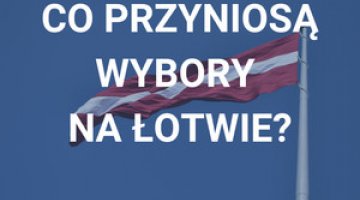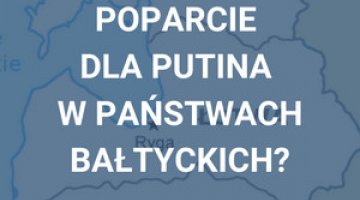Russian independent TV station Dozhd loses Latvian broadcasting license
On 6 December, Latvia’s Electronic Media Council (NEPLP, the state media market regulator) revoked the broadcasting license of Dozhd (TV Rain) – a Russian anti-Kremlin opposition television station operating in the country. The step was justified by the threat to Latvia’s national security and public order due to violations by the editorial board. This included: criticism of the state’s internal affairs, breaking labour laws, narratives reflecting the official point of view of the Russian government, and a lack of broadcasts in the Latvian language.
The station had already received a warning from the regulator due to content which the Latvian authorities deemed pro-Russian. On 1 December, the station was issued another warning, this time with a fine (€10,000). At the time, vetting procedures of the Electronic Media Council and the State Security Service (counterintelligence) were also initiated, which was related to the incident that day. During the a live broadcast, the station’s journalist Alexey Korostelov provided an e-mail address and an account on the Telegram messaging platform where viewers could send information about Russian involvement in the war in Ukraine. He further stated that “we hope that we have been able to help many soldiers, for example with equipment and basic facilities at the front”, implying that the station is committed to supporting the Russian army. The statement also provoked heated criticism outside Latvia. As a result, the journalist was fired, and his words were presented by editorial management as an unfortunate mistake. On 6 December, TV Rain received a third warning from the NEPLP. Under Latvian law the third strike warrants cancellation of the license.
The ruling to revoke the license (as of 8 December this year) deprives TV Rain of the right to broadcast via cable in Latvia and de facto within the entire European Union (as broadcasting from another country would require a new license). Additionally, geo-blocking will be imposed on broadcasts via the YouTube platform within Latvia. Outside Latvia’s territory, the reception of TV Rain content on the Internet will not be restricted. The management of the TV company has the right to appeal the Latvian regulator’s decision.
TV Rain and its relocation to Latvia
TV Rain is a Russian news channel that has been broadcasting since 2010, currently mainly via the Internet (it has 3.71 million subscribers on YouTube and is believed to reach an audience of 13 million users per month in Russia alone). The station is editorially independent, openly criticises government politics in Russia and is considered to be in opposition to the Kremlin. In Russia, it repeatedly fell victim to oppressive legislation restricting the freedom of speech and was given “foreign agent” status. From the beginning of the Russian invasion of Ukraine, the editorial board presented an unequivocally anti-war position and attempted to report objectively on events on the front. In early March 2022, the channel was forced to suspend its operations in Russia due to the threat of repression and unprecedented censorship (primarily on the basis of new media regulations related to coverage of the so-called special military operation). The editors reported at the time that most of the staff, including editor-in-chief Tikhon Dzyadko, had left Russia for security reasons.
On 18 July, the channel resumed broadcasting from Riga under a license granted by the NEPLP. The licence allowed TV Rain to broadcast on cable networks and online platforms (YouTube) and to hire staff. Institutional and infrastructural support was provided by the Baltic media holding company TV3 Group. Registered in Latvia, TV Rain is 95% owned by Natalya Sindeyeva and 5% by lawyer Mikhail Parinov.
Reactions to the decision
TV Rain’s CEO Natalya Sindeyeva expressed disappointment at the Latvian authorities’ decision to revoke the license. She pointed out that this blocks its access to the cable network and will lead to financial losses of 20% of its revenue. However, she insisted that the channel would continue broadcasting on the Internet via YouTube.
Numerous members of the Russian political opposition diaspora, in emotional comments, described the decision as unfair, and beneficial for the Kremlin, which is highly interested in destroying free Russian media and discrediting the anti-Kremlin opposition. At the same time, accusations were raised against Latvia, which, in their view, turned out to be “Russophobic” and “supportive of authoritarian rule”. At the same time, it was pointed out that the Latvian authorities were among the initiators of the visa ban for Russians. The editors of the Russian independent news website Meduza (also based in Riga) published a statement of solidarity with the TV Rain staff. It was joined by other Russian diaspora media outlets in Latvia.
The first reaction from the Russian government was a statement by Kremlin spokesman Dmitry Peskov, who said that depriving TV Rain of its broadcasting rights is proof that the belief in freedom of speech in the West is baseless and that “it’s better than at home”.
Commentary
- Latvia has welcomed a number of opposition editorial teams from Russia and provided them with visa support to create opportunities for the Russian public to access independent media. Riga has been home to Meduza, one of Russia’s most important news websites, since 2014. In addition to TV Rain, the online edition of Novaya Gazeta (Novaya Gazeta. Europe) moved to Riga in the spring of 2022. Nonetheless, the attitude of TV Rain’s editorial staff, including its violations of existing rules, and critical themes in its coverage of the dismantling of Soviet monuments or visa bans for Russians caused dissatisfaction from the Latvian authorities and media, and was perceived as an abuse of hospitality. The very swift handling of the procedure to revoke the channel’s license indicates that the incident of 1 December was most likely a pretext to implement a political decision that had been long brewing. Nonetheless, the situation surrounding the TV station will probably not significantly affect the activities of other independent Russian media headquartered in Latvia.
- As part of its development, TV Rain has established (in addition to the one in Riga) TV studios also in Amsterdam and Tbilisi. There were also plans to open one in Paris. Although the Latvian authorities’ decision does not result in the need to relocate the editorial team, the station’s director has declared that this step may be considered. However, in the event of relocation to another EU country, the station will have to obtain a new broadcasting license.
- Official Russian reactions indicate that the decision to strip TV Rain of its license in Latvia was welcomed in Moscow. For Russia, this created an opportunity to accuse the West of hypocrisy, the use of double standards against Russia, and the Russophobia allegedly widespread throughout the West (especially in the Baltic states and Poland), which affects all Russians, regardless of their political stances.
- TV Rain’s problems are indicative of the difficulties and dilemmas faced by Russian media outlets and independent circles operating in exile. These include the need to legalise the permanent stay of journalists and other staff in line with the EU legal requirements, severely limited access to the target Russian domestic audience, and funding problems, since their operations rely mainly on donations from viewers and subscription fees. The main challenge, however, is to find a way of conveying a message that, on the one hand, would allow them to reach Russian society, which is deeply influenced by massive state propaganda, and, on the other hand, would not spark controversy among the Western societies in whose environment they operate. The events surrounding TV Rain (especially its reaction to the accusations and the revocation of its license) have shown that the channel’s editors do not fully comprehend (or accept) that in the context of war, the top priority for Latvia and the West as a whole is to help Ukraine and its people.





